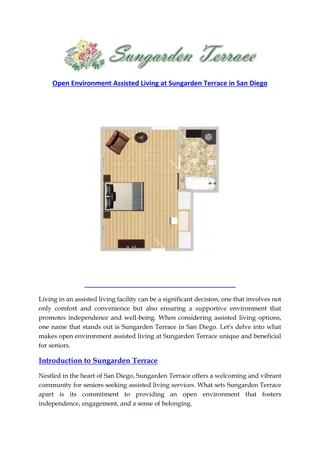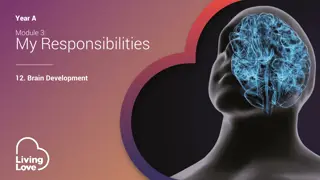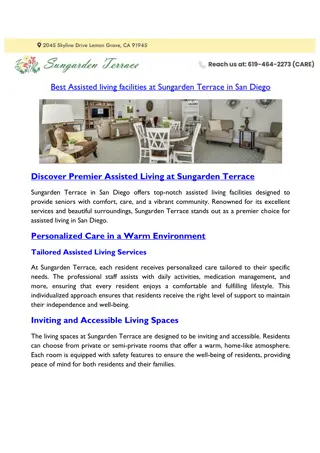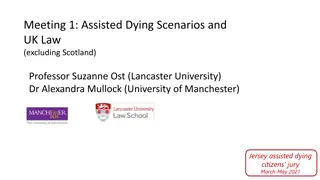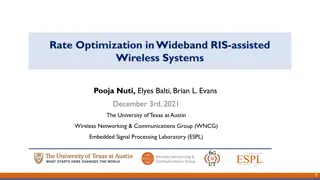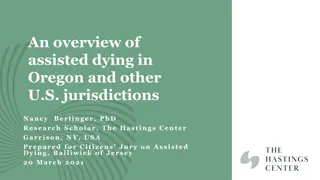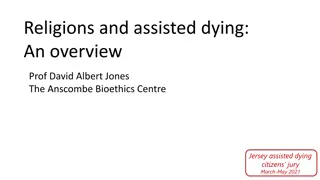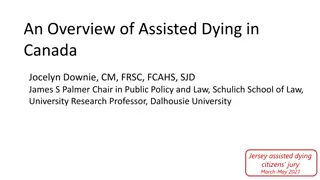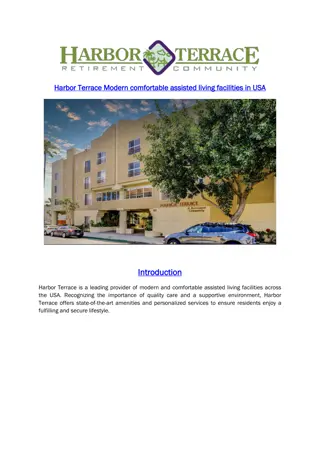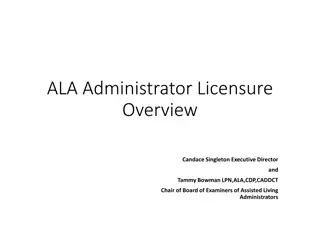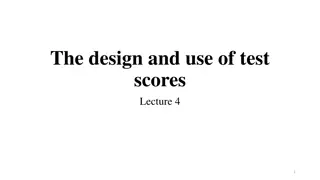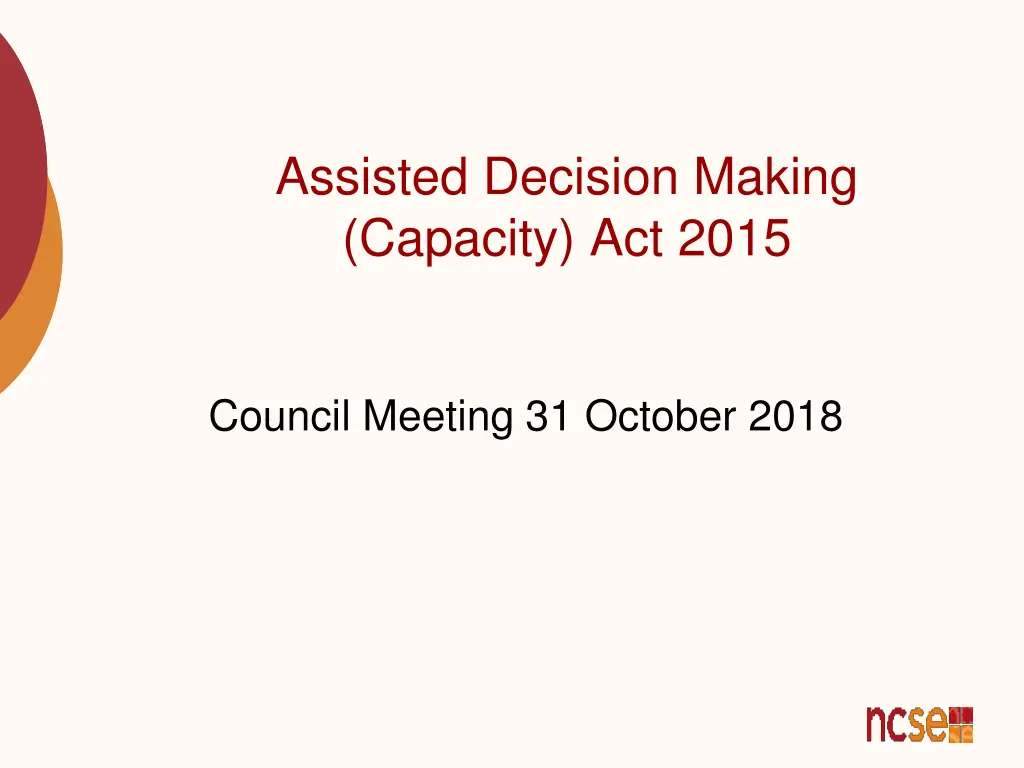
Assisted Decision-Making Act 2015: Practical Implications & Educational Impact
Explore the Assisted Decision-Making Act 2015 which provides a framework for decision-making supports, highlighting its practical implications, impact on educational settings for over 18s, and relevant forms for accessing support services.
Download Presentation

Please find below an Image/Link to download the presentation.
The content on the website is provided AS IS for your information and personal use only. It may not be sold, licensed, or shared on other websites without obtaining consent from the author. If you encounter any issues during the download, it is possible that the publisher has removed the file from their server.
You are allowed to download the files provided on this website for personal or commercial use, subject to the condition that they are used lawfully. All files are the property of their respective owners.
The content on the website is provided AS IS for your information and personal use only. It may not be sold, licensed, or shared on other websites without obtaining consent from the author.
E N D
Presentation Transcript
Assisted Decision Making (Capacity) Act 2015 Council Meeting 31 October 2018
Assisted Decision Making (Capacity) Act 2015 A Review of the practical implications for NCSE Potential implications Awareness of staff of Act and potential implications Students over 18 and protocols for engaging with them
Assisted Decision Making (Capacity) Act 2015 The Assisted Decision-Making (Capacity) Act 2015 provides a statutory framework for individuals to make legally-binding agreements to be assisted and supported in making decisions about their welfare and their property and affairs. This assistance and support is particularly required where the person lacks, or may lack, the capacity to make the decision unaided.
Assisted Decision Making (Capacity) Act 2015 To respond to the range of support needs that people may have, the Act provides for three types of decision-making supports. These are: Assisted Decision-Making Co-Decision-Making Decisions by the court or by a Decision- Making Representative appointed by the court
Assisted Decision Making (Capacity) Act 2015 Impact in an educational setting Over 18s accessing SNA resources Over 18s accessing Assistive Technology NCSE has specific applications for overs 18 for accessing these services only Numbers of applications are minimal
Assisted Decision Making (Capacity) Act 2015 Form for accessing SNA support for Over 18s
Assisted Decision Making (Capacity) Act 2015 Form for accessing Assistive Technology for Over 18s
Assisted Decision Making (Capacity) Act 2015 SNA over 18s application form retained the signature/consent of the parent/guardian included in under 18s form and has additional section for student signature/consent. Assistive Technology over 18s application form has replaced the signature/consent of the parent/guardian included in the under 18s form and has replaced it with section for student signature/consent. Difference approach
Assisted Decision Making (Capacity) Act 2015 Underlying assumption of both forms that student has capacity of consent. No formal guidelines for staff on steps to determine capacity of consent cases are dealt as standalone cases
Assisted Decision Making (Capacity) Act 2015 Lessons and follow up required Review of forms for application for services by students over 18 consistency and completeness of suite of forms Framework for determining capacity to consent Increased awareness for staff
Assisted Decision Making (Capacity) Act 2015 Questions for consideration Training and awareness required How to develop a framework determining capacity to consent


